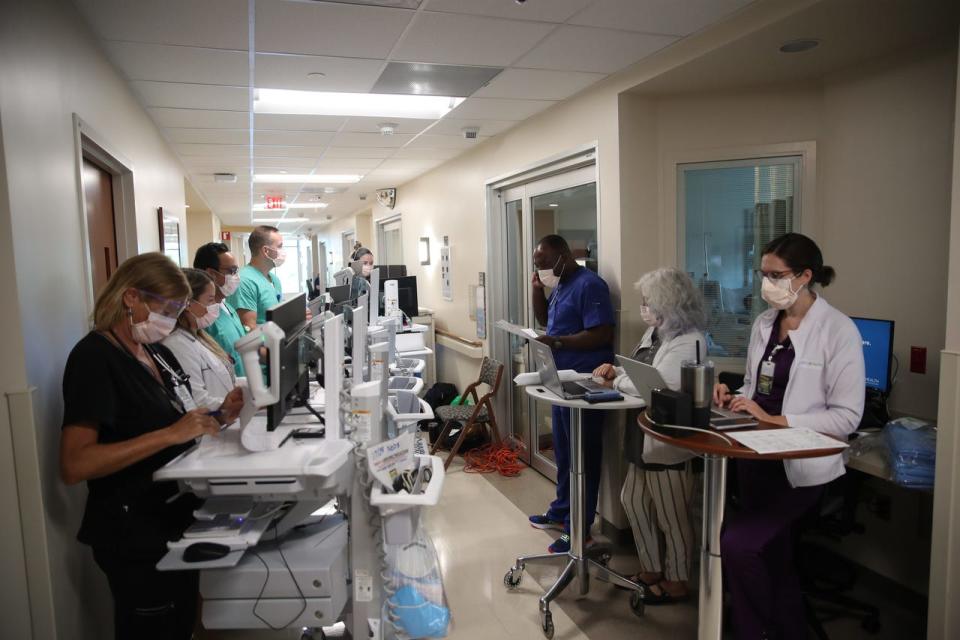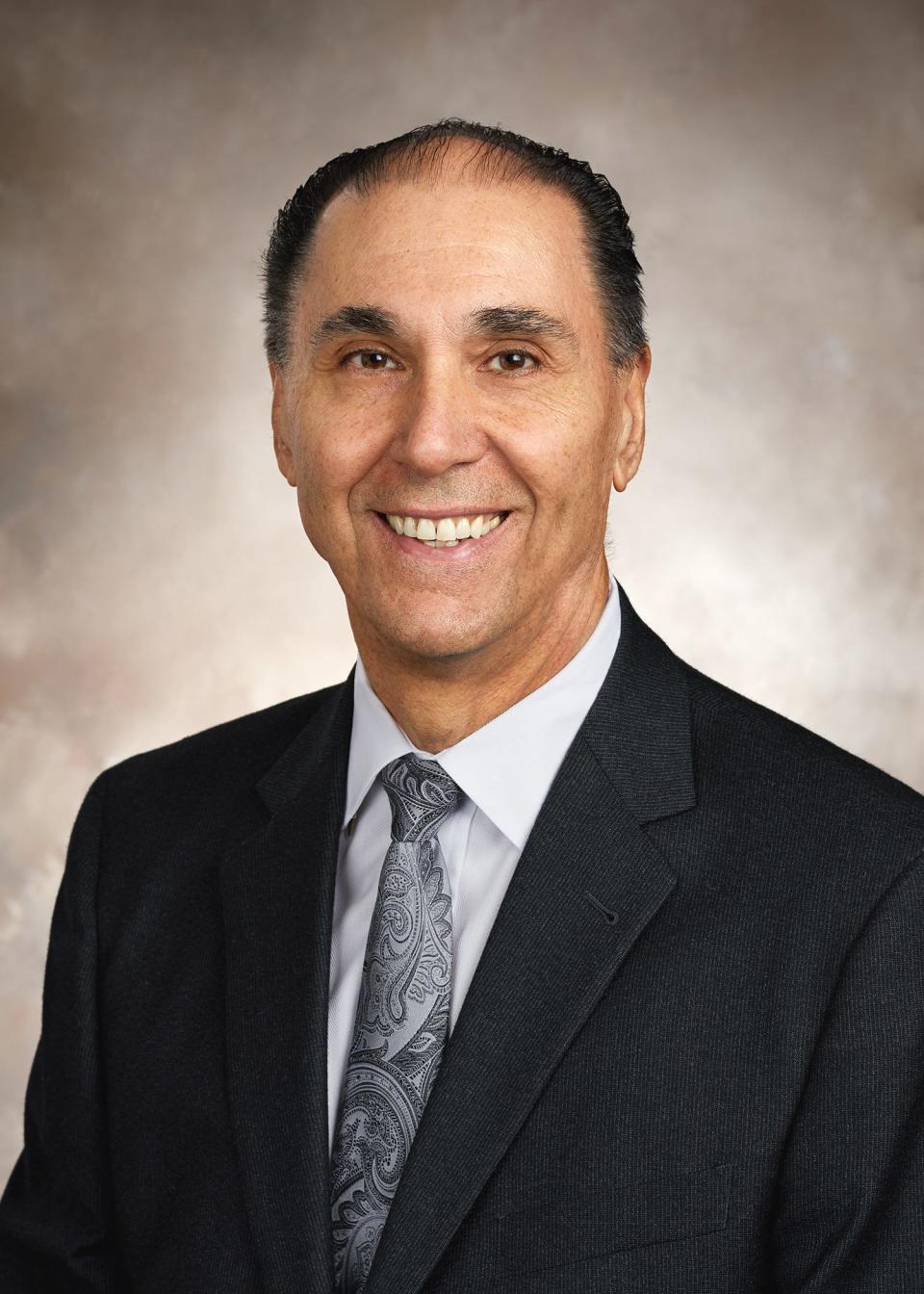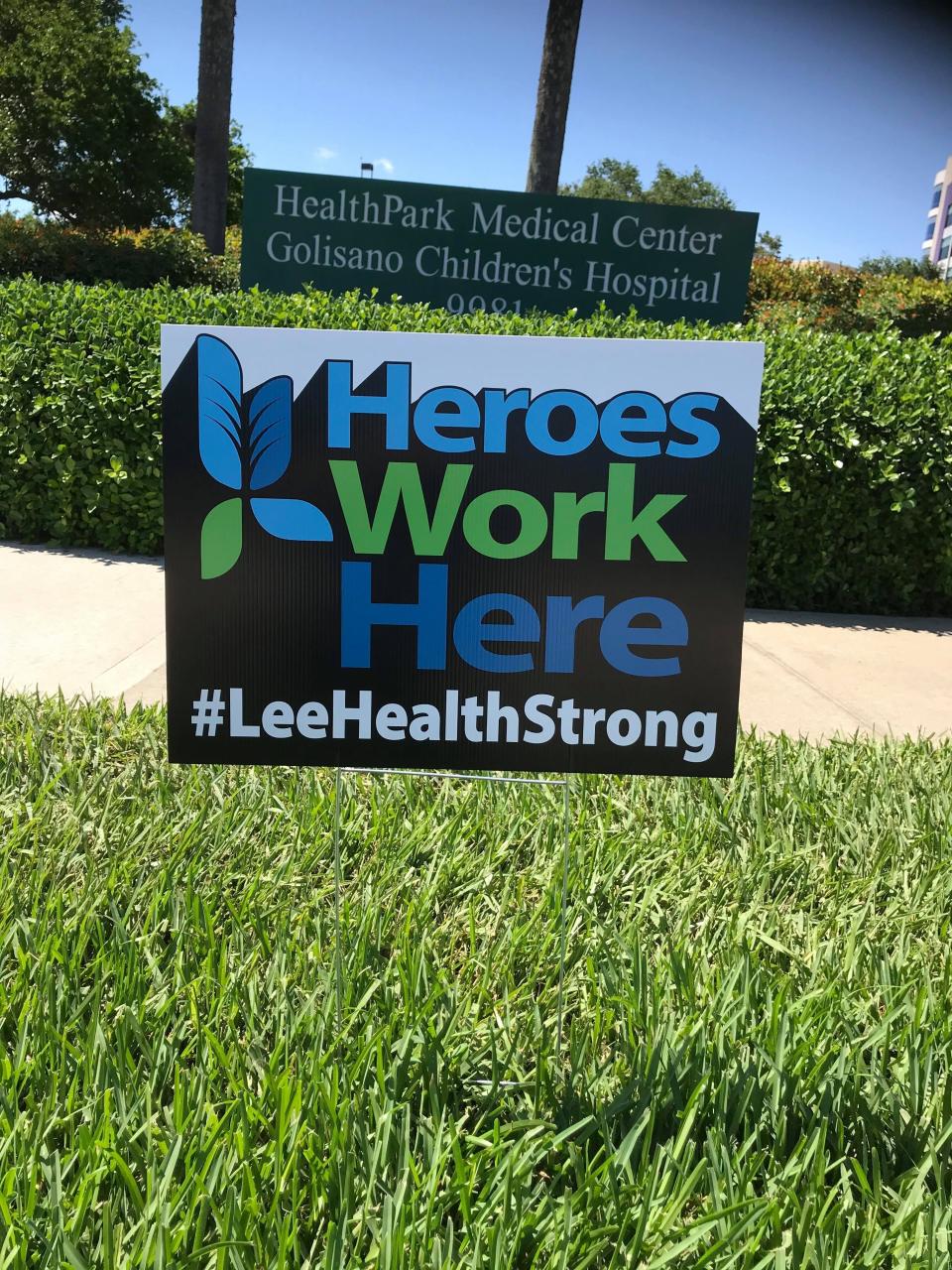Lee Health looking at converting to a private nonprofit entity
Lee Health leaders are hiring consultants to examine the pros and cons of potentially converting from a public hospital system to a private nonprofit organization.
The publicly-elected board of directors has given Dr. Larry Antonucci, president and chief executive officer, the authority to hire independent consultants to conduct the complex review.
The decision at the Aug. 31 board meeting to do an evaluation is a first of several steps in a lengthy process to consider changing to a private nonprofit status that will include a public hearing for citizen input.
The board can decide at any time to drop the issue and maintain status quo.
Lee Health is one of the largest public hospital systems in Florida and the United States with a combined 1,865 beds and 15,000 employees.

More: Lee Health examines pros and cons of changing to private, nonprofit system
It’s annual operating budget is $2.5 billion, although Lee Health does not receive direct taxpayer support as a safety-net hospital. That’s where a significant number of patients are uninsured, who tend to be sicker, and who are given charity care.
The hospital system also cares for a significant number of patients on Medicaid, the state and federal insurance for the poor, which does not fully cover the cost of services.
As a public hospital system, Lee Health receives tax breaks in exchange for providing what’s known as “community benefits” and it can issue tax-exempt bonds for capital projects at lower interest rates.
The system provided “community benefits” valued at nearly $243 million in 2021 which netted out to $160 million after foregone taxes, according to an annual report.
Lee Health would still have a break on federal, state and local taxes if it becomes a private nonprofit system; it would have to partner with a governmental entity to issue tax exempt bonds, according to its attorneys.
Lee Health also has sovereign immunity protection against large medical malpractice payouts with an aggregate limit of $300,000, which would no longer apply if it converts to a private nonprofit system.
HCA signals it is coming back to SWFL
Public hospitals face headwinds from for-profit systems with more commercially insured patients with higher reimbursement and lower charity care volumes.
Lee Health is the dominant hospital system in Lee although for-profit HCA Florida Healthcare plans to build a 100-bed hospital at 3851 Colonial Blvd. in Fort Myers. The site has been rezoned for a hospital, according to an HCA official.
Lee Health announced plans in 2021 to build a new 216-bed hospital on Challenger Boulevard between Colonial and Winkler.
HCA operates a freestanding emergency room in Cape Coral. The chain has 49 hospitals and 65 urgent care centers in the state.
HCA was Lee Health’s competitor years ago when it owned Southwest Florida Regional Medical Center on Winkler Avenue and Gulf Coast Hospital off Daniels Boulevard. Lee Health bought both in 2006 for $535 million.
Southwest Florida was torn down and the other hospital was renamed Gulf Coast Medical Center which is now Lee Health’s flagship campus.
State scrutiny on illegal immigrant care
Hospitals in Florida, particularly public systems with more charity care volumes, are facing scrutiny for their care of illegal immigrants.
Gov. Ron DeSantis ushered in a broad immigrant bill that took effect in July that, among other things, requires hospitals to ask patients about their legal status in the country.
Hospitals that accept Medicaid are required to produce quarterly reports to the state with data about the number of admissions or emergency room visits within the previous quarter where patients indicated their legal status or declined to answer.
Citizens in Sarasota have been questioning if Sarasota Memorial Hospital, which does have taxing authority, should be revamped.
This past spring a group of citizens called for the taxing authority of the publicly-run Sarasota Memorial to be dissolved, saying the $81 million it will raise this year is unjustified.
The Sarasota group also questioned the hospital system’s limits on medical malpractice judgments under the same sovereign immunity law that applies to Lee Health.
More: Legislation would give publicly-run Lee Health an option: Go private?
Board members are not unified
The Lee Health board decision to evaluate a conversion and hire consultants was not without some people questioning why it was on the agenda so soon after no meetings in July and most of August.
Board member Therese Everly said she was stunned when she saw it was on the agenda and that there has not been any input from the medical staff. The board was told a town hall meeting with the medical staff was planned.
Dr. Stephen Brown, another board member, said a conversion would be a dramatic change and he was comfortable with the current structure.
“Once you start going down a slippery slope it is awful hard to stop,” Brown said.
Both Everly and Brown voted against going forward with an evaluation and hiring consultants.

Antonucci, the CEO, said consideration of a conversion is not simple and the hospital system needs an evaluation by outside consultants on what a private nonprofit structure could do.
“I am not endorsing conversion,” Antonucci said. “This is a tool to put in our tool shed and do we like how it feels.”
Earlier at the board meeting, Antonucci said HCA will “most likely” build a hospital in Fort Myers. HCA’s payer mix is 49% commercially insured patients with higher reimbursement compared to Lee Health’s commercially insured market of 20% to 25% of its payer mix, he said.
Board chairwoman Donna Clarke said the evaluation would enable the board to get all the questions and answers it needs.
“The concept here is not to change operations, it is to continue to improve,” she said.
In an Aug. 24 memo to Antonucci and the board, Lee Health attorney Mary McGillicuddy said the system’s commitment to providing safety-net care is at the core of its duty to residents.
“That commitment will not change, regardless of whether Lee Health is a public or private entity,” she wrote.
What are the steps for a conversion?
All the steps for a conversion are outlined in state legislation that state Rep. Adam Botana, R-Bonita Springs, sponsored this past spring on behalf of Lee Health and which DeSantis signed in June.
Consultants with Kaufman Hall, a health-care group out of Chicago, presented information via Zoom how they have handled similar conversion evaluations for other hospitals around the country.
About one-third of the hospitals opted not to complete a conversion after having evaluations on the pros and cons, according to Anu Singh, with the firm.

Lee Health attorneys said a vote to start the evaluation starts the clock on a 180-day deadline to get the evaluation back, post it on Lee Health’s website and hold a public hearing.
Hiring consultants for an evaluation is not something that requires Lee Health to use its request for proposals process that’s required for building projects, McGillicuddy said.
Only a handful of consulting firms, including Kaufman Hall, can be considered for the evaluation because it has to be a group that has not done work for Lee Health in the past, according to staff.
By starting now, the evaluation could be done in January when most part-time residents are in town, Clarke said.
Once Lee Health gets the evaluation report, the board must vote within four months if residents’ interests would be best served by becoming a nonprofit entity.
If the board votes favorably on that, the next step is negotiating, drafting and completing within four months an agreement with the Lee County Commission.
The agreement must outline how the hospital will transfer all assets and liabilities to the new nonprofit organization. The agreement must address how health care services will continue to be provided, according to the conversion legislation.
The Lee Health board must approve by a majority vote plus one in favor of the agreement, which serves as approval for converting. The Lee commission also must approve the agreement.
If that happens and the proper notices are sent to the state for transferring Lee Health’s assets to a new nonprofit entity, the current 10-member Lee Health board would cease to exist.
The conversion legislation says no current Lee County commissioner could serve on the new nonprofit board for the hospital system but members of the Lee Health board could.
This article originally appeared on Naples Daily News: Will Lee Health go private? System looks at change to nonprofit status

